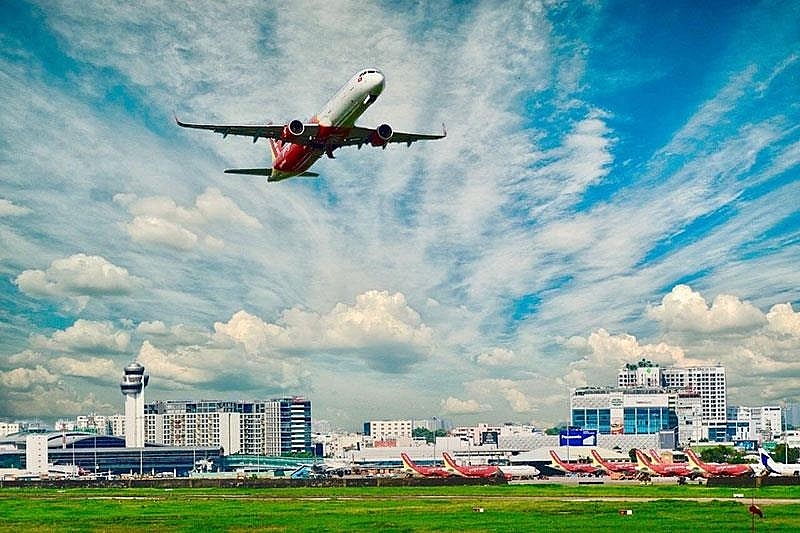Vietnam aviation market under double pressure as the sky increasingly ‘crowded’

The Vietnamese aviation market is beset by the growing number of airlines and poor infrastructure
Since the end of 2018, the Vietnamese aviation market welcomed new players including Bamboo Airways which officially took off in January 2019, Vietravel Airlines, Vinpearl Air, or Thien Minh Airlines, which is right now dealing with the licensing procedures, making the Vietnamese sky more crowded.
However, the real growth of the aviation industry has been decelerating recently.
According to data from the Civil Aviation Authority of Vietnam, in the first half of 2019, the whole aviation industry had 153,559 flights, a slight increase of 2.4 per cent on-year. Of this, domestic airlines transferred 20.2 million domestic passengers (up 12.5 per cent) and 18.3 million international passengers (up 6.2 per cent).
However, these numbers mean the growth of the Vietnamese aviation market is slowing down, according to Phu Hung Security (PHS). The company also assumed that the country's aviation market will continue slowing down due to the falling number of international passengers while the domestic passenger market is plateauing out. Along with that, the aviation facilities of the country lack synchronous development, keeping the industry from developing.
In addition, the giants in the aviation industry might have to share the market with latecomers.
According to the Vietnam National Administration of Tourism, the number of international passengers arriving to Vietnam in the first half of 2019 reached 8.4 million. The number of passengers travelling by airway recorded a slower increase of only 4.8 per cent. Meanwhile, the figures for the first half of last year were 27 per cent increase in international visitors to Vietnam and 22.2 per cent increase in passengers travelling by airway, while the figures were 29.1 per cent in 2017 and 26 per cent in 2016.
China and South Korea account for more than half of the total number of international passengers to Vietnam. The number of Chinese visitors decreased by 3 per cent, affecting the tourism industry and the aviation market.
Not only Vietnam, tourism across Southeast Asia took a hit from fewer Chinese passengers. The second-largest economy of the world being under pressure might impact the growth of the tourism industries in the Indochina region.
The number of Asian visitors to Vietnam reached 7.6 million, accounting for 77 per cent. Visitors from Europe made up 13 per cent, while 6 per cent hailed from the Americas, and 1 per cent from Australia.
Overloaded and rundown aviation facilities
Another issue is that the country's aviation facilities are not at a level to match the growth of the industry. The two international airports, Noi Bai and Tan Son Nhat, have been receiving more passengers than their designed capacity in recent years. The number of visitors in 2018 passing through the two international airports was 38.5 and 26.1 million, much higher than their 28 and 25 million capacity.
This leaves the facilities in a serious state of degradation. Runways 25R/07L of Tan Son Nhat and 1B of Noi Bai both have cracks because they have to accommodate far more aircraft taking off and touching down than their designed capacity.
In the near future, the number of passengers will continue to increase – albeit at a slower pace – while the capacity of the two most important airports cannot. And the road infrastructure connecting to neighbouring airports remains problematic at best. Therefore, the closure of these runways for repair or upgrade would heavily affect the operations of air transport companies.
In addition, there are new players ping into aviation, further increasing pressure on infrastructure. According to experts, the number of aircraft might reach 380 in 2023-2025, almost twice as much as the current 197.
In the past, the aviation market maintained a growth of nearly 20 per cent per year. This impressive number also created favourable conditions for Vietjet to join the low-cost niche, breaking the monopoly of Vietnam Airlines.
However, the appearance of new aviation businesses has made the market narrower. According to experts, since beginning operations, Bamboo Airways has been eating into the profits of the two giants, seizing 4 per cent of the market with ambitions to reach 30 per cent. VIR
